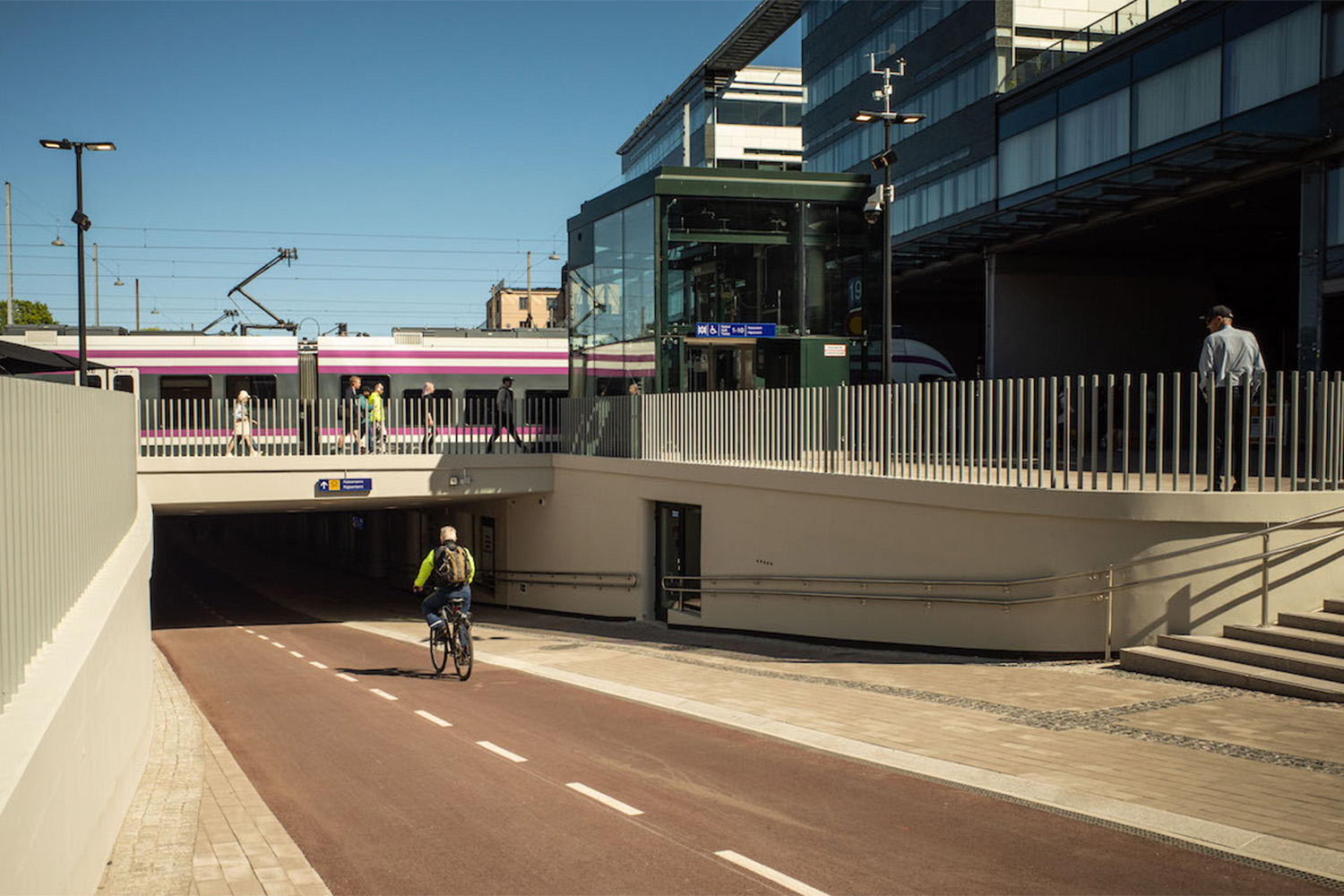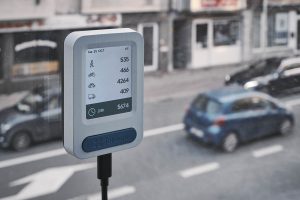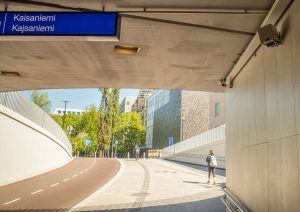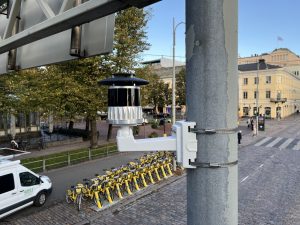Shared data supports the development of smart mobility innovations
Access to diverse mobility data opens up opportunities to develop even better cities through collaboration. The lessons and datasets from the Mobility Lab Helsinki project’s smart mobility experiments are open information for everyone.

When discussing innovation experiments, the question often arises: what happens after the testing, and how can RDI activities be supported sustainably with pilots? The joint smart mobility testbed project of Business Helsinki and Forum Virium Helsinki, Mobility Lab Helsinki, addresses this challenge with the Mobility Data Catalog, which collects relevant datasets for the development of smart mobility. The goal of Mobility Lab Helsinki is to promote the emergence of new mobility services by providing companies with the opportunity to develop new solutions in real urban environments, and the data catalog supports and ensures continuity after innovation experiments.
Companies, research institutions, and other actors can share information and collaboration opportunities through the data catalog. Anyone is welcome to contribute to the data catalog with datasets.
Open data as the basis for many pilots – and vice versa
Sharing and openness of data have been a good starting point for many pilots. For example, in this past year’s traffic counting and sensor pilots, existing data was utilized and new open data was produced. This topic was discussed in our “Afternoon with Sensors” webinar. The event showcased three innovations we tested that advance the development of the digital twin for mobility: the Telraam traffic counter that attaches to windows, the FlowCube that measures traffic and travel times, and Flow Analytics’ LiDAR sensor.
Recent traffic counting and sensor pilots
Telraam
Telraam is a user-friendly traffic counting device that is well-suited for crowdsourcing: basically anyone can participate in traffic counting cost-effectively, and several Helsinki residents were involved in our experiment. The inexpensive sensor is attached to a window, and its small camera counts traffic passing by in both directions. The sensor separately classifies bicycles, pedestrians, cars, and several other vehicle categories, and also measures direction and speed. Artificial intelligence recognizes moving figures and immediately processes and converts them into computational values in the cloud. The device does not record images, only numbers. The pilot continues in winter and at night. The pilot started in February 2024, and the first results were obtained in October 2024.
Flowcube
Technolution’s FlowCube began testing in Kaisantunneli in May 2024. The pilot also expanded to the Töölönlahti and Baana areas and will continue until spring 2025. The sensor observes figures, traffic volume, speed, crowd sizes, and travel time. The device does not require a separate connection to communicate, no wires, and no separate external camera. Its discreet appearance protects it from vandalism. This innovation also ensures privacy: it does not record images or videos, but counting is done using anonymous identification codes in accordance with GDPR requirements.
Flow Analytics
In Flow Analytics‘ data collection pilot, traffic data was collected and traffic behavior and directions were analyzed during temporary traffic arrangements in the Esplanadi area. Data analysis began in the summer, and the first results are expected in November 2024. The experiment tested the use of LiDAR technology and point clouds in traffic counting. The AI used in the solution recognizes a walking human figure but not the person, nor does it recognize, for example, license plates. The technology complies with GDPR requirements and is well-suited for continuous and versatile traffic measurement. The produced analysis can also be used to test simulations.
Better and smarter mobility in Helsinki through collaboration
– With our diverse datasets, companies and the city have entirely new opportunities to apply existing data to develop innovative smart mobility solutions, says Jussi Knuuttila, Project Manager of Mobility Lab Helsinki at Forum Virium Helsinki.
Our recent pilots, which used open data and produced new information in a real urban environment, have been beneficial for the participating companies. New contacts have also been established between companies.
– By piloting, we were able to clearly identify what works in our solution and what still needs to be developed. In a real urban environment, we noticed that the cold and dark surroundings are a challenging target for us, from which we want to learn more during the coming winter. It’s great to gain new experiences that accelerate product development. Through the experiment, we also got to know a Helsinki-based company that complements our operations, with whom we could start collaborating, reflects Kris Vanherle from Telraam.



Jari Erämaa from Flow Analytics also praises the smart traffic testing platform:
– A tip for all companies: it’s worth getting involved! Mobility Lab Helsinki made our lives much easier: through them, we got in touch with city officials and received a lot of help with implementation, such as our electrical and maintenance needs. This is truly a unique opportunity for companies.
The openness and sharing of data excites Michael Dubbeldam from Technolution:
– It was a great opportunity to be involved in producing data that is also beneficial for testing other new solutions. We noticed that you handle and verify the information you receive carefully. This system creates continuity for pilots and makes it truly possible to learn something from them.
Photos: Jussi Knuuttila/Mobility Lab Helsinki and telraam.net

